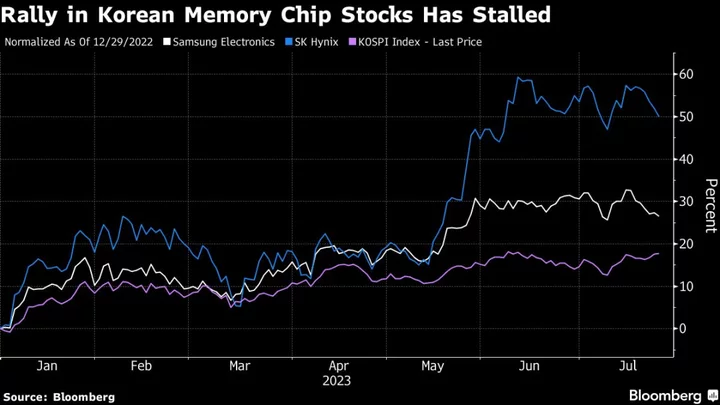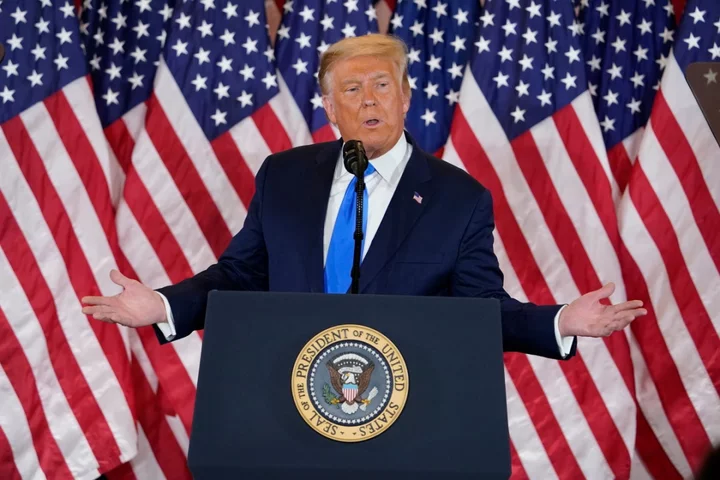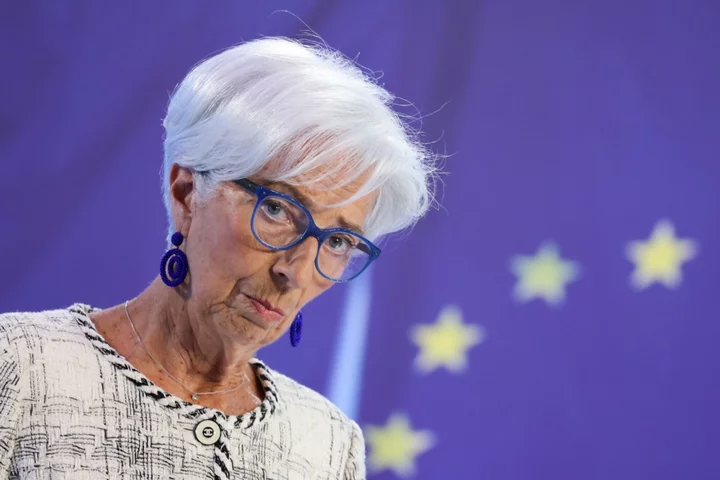The rally in Korea’s biggest chip stocks may have paused, but the manager of an $18 billion technology fund at Fidelity International sees a fresh run of gains just around the corner.
“The memory cycle is nearing or potentially at a trough, and AI-related investment is likely to drive a strong demand recovery,” Hyun Ho Sohn, who oversees Fidelity’s Global Technology Fund in London, said in an interview. Weak earnings are priced in, and positive guidance from management may start to push stocks higher again, he said.
The global surge in semiconductor stocks is taking a breather in July as companies face an earnings reality check and some investors book profits. Bulls say the worst may have passed after a dismal preliminary revenue report from Samsung Electronics Co. as electronics firms work through bloated stores of memory chips.
Investors from BlackRock Inc. to JPMorgan Asset Management continue to pile into semiconductor stocks, touting the prospects of artificial intelligence. Sohn said he’s more “realistic” on the promise of AI but noted that some global chip shares are still trading near book value, “which makes for a compelling valuation prospect,” Sohn said.
The Fidelity fund is up 24% this year, outperforming 45% of peers, while it has beaten most over a five-year period. It increased holdings of Samsung and its South Korean peer SK Hynix Inc. in May.
Shares of Samsung and SK Hynix have slipped this month, trimming their 2023 rallies to 27% and 50%, respectively. Despite the gains, shares of both companies are trading at less than 1.3 times book value compared with 5.3 times for a gauge of US chip stocks, whose valuations have swelled on the AI theme.
The world’s largest memory chipmakers are slated to report their full second-quarter earnings this week.
In addition to the memory makers, Sohn said his fund is betting on “underappreciated” beneficiaries of AI including data infrastructure firms. Success will depend on “the cost, compliance and regulatory hurdles enterprises will have to meet utilize AI applications,” he said.
Here are some other takeaways from the interview:
- Sohn has turned “more positive” on Chinese tech stocks after signs of easing in regulatory crackdowns and more support from Beijing for private enterprise. The fund increased its position in Tencent Holdings Ltd. in the second quarter, according to filing data compiled by Bloomberg.
- He remains underweight on the US due to “generally less attractive valuations”. Still, the Nasdaq 100 Index’s 41% advance this year may “ultimately be more sustainable than was the case in 2000” as technology demand is more diversified beyond internet ventures, he added.









